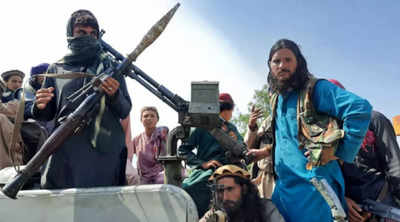Top Searches
- News
- World News
- South Asia News
- Ethnic minorities fear a repeat of past atrocities
Ethnic minorities fear a repeat of past atrocities

(Representative photo)
As the Taliban cement their control over Afghanistan, there is a deepening fear among the country’s religious and ethnic minorities that the gains they made over the past two decades could be lost and that they could again find themselves the target of persecution. Many Hazaras worry that atrocities of the past will be revisited despite assurances from the Taliban leadership that they have changed. “We are extremely worried and scared. Taliban have a history of violence against us,” one Hazara man who lives in Kabul said by telephone, not wanting his name used in public for fear of reprisals. “Now I feel I am a target for them. I don’t leave home unless it is very necessary.” He said local Taliban officials had assured residents that civilians would not be targeted as they entered the area. But he said his father-in-law was killed by militants in Ghazni Province after the Taliban captured the area last month. “He had not harmed anyone, he was just a teacher, a religious scholar and an educator,” he said of his father-in-law.
As the Taliban swept across Afghanistan this summer, an investigation by Amnesty International has found evidence of the slaughter of nine Hazara men, raising fears of more bloodletting to come. “On-the-ground researchers spoke to eyewitnesses who gave harrowing accounts of the killings,” which took place in early July in Ghazni Province, according to the report. “Six of the men were shot, and three were tortured to death, including one man who was strangled with his own scarf and had his arm muscles sliced off.” One witness said villagers had asked the fighters why they inflicted such brutality on people. The answer from a fighter, the witness said, was that “in a time of conflict, everyone dies.” The killings took place before the Taliban issued a blanket amnesty in Kabul this week, promising no reprisal killings and safety for all Afghans.
Yet the last time the Taliban swept to power, they exacted revenge on the Hazara population after taking control of Mazar-i-Sharif, a city in the north. “Within the first few hours of seizing control of the city, Taliban troops killed scores of civilians in indiscriminate attacks, shooting noncombatants and suspected combatants alike in residential areas, city street sand markets,” according to an investigation by Human Rights Watch. This time around, one of the Taliban militants’ first acts after taking control of the country was to blow up a statue of the Shia militia leader Abdul Ali Mazari in Bamiyan Province, the Hazaras’ unofficial capital.
As the Taliban swept across Afghanistan this summer, an investigation by Amnesty International has found evidence of the slaughter of nine Hazara men, raising fears of more bloodletting to come. “On-the-ground researchers spoke to eyewitnesses who gave harrowing accounts of the killings,” which took place in early July in Ghazni Province, according to the report. “Six of the men were shot, and three were tortured to death, including one man who was strangled with his own scarf and had his arm muscles sliced off.” One witness said villagers had asked the fighters why they inflicted such brutality on people. The answer from a fighter, the witness said, was that “in a time of conflict, everyone dies.” The killings took place before the Taliban issued a blanket amnesty in Kabul this week, promising no reprisal killings and safety for all Afghans.
Yet the last time the Taliban swept to power, they exacted revenge on the Hazara population after taking control of Mazar-i-Sharif, a city in the north. “Within the first few hours of seizing control of the city, Taliban troops killed scores of civilians in indiscriminate attacks, shooting noncombatants and suspected combatants alike in residential areas, city street sand markets,” according to an investigation by Human Rights Watch. This time around, one of the Taliban militants’ first acts after taking control of the country was to blow up a statue of the Shia militia leader Abdul Ali Mazari in Bamiyan Province, the Hazaras’ unofficial capital.
FacebookTwitterLinkedinEMail
Start a Conversation
end of article

